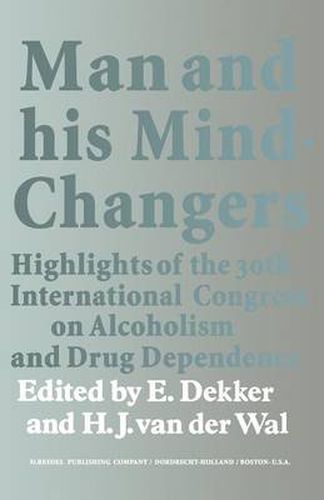Readings Newsletter
Become a Readings Member to make your shopping experience even easier.
Sign in or sign up for free!
You’re not far away from qualifying for FREE standard shipping within Australia
You’ve qualified for FREE standard shipping within Australia
The cart is loading…






This title is printed to order. This book may have been self-published. If so, we cannot guarantee the quality of the content. In the main most books will have gone through the editing process however some may not. We therefore suggest that you be aware of this before ordering this book. If in doubt check either the author or publisher’s details as we are unable to accept any returns unless they are faulty. Please contact us if you have any questions.
We ourselves are part of the problem, not ofits solution . This pronouncement, made by psychologist R. S. B. Wiener during the panel on social policy, provided a leading Dutch weekly with an excellent headline for an article on the 30th International Congress on Alcoholism and Drug Dependence. With it Wiener touched one of the central, if not the central issue of the alcohol and drug problem. Why do we fix our attention so emphatically on ‘the other people’, on the consumers, abusers and addicts? Has not the time come that, also at scientific and learned congresses, we should start occupying ourselves with the shortcomings of society and with its legislation and policy as factors promoting this abuse and addiction? The question is so obvious that no one will dare give a neg ative answer. For this reason it is even more striking that it is given so little serious thought. We still try to change the consumer instead of the social structure. In his opening address, the Minister of Public Health and Environmental Hygiene of the Netherlands, Dr 1. B. J. Stuyt, gave some attention to this social structure. He pointed out that a social structure which is characterized by poverty and deprivation promotes the abuse of alcohol. Dekker/van der Wal (eds. ). Man and His Mind-Changers. 1-9. All Rights Reserved. Copyright © 1973 by D. Reidel Publishing Company. Dordrecht-Holland 2 E. DEKKER AND H. J.
$9.00 standard shipping within Australia
FREE standard shipping within Australia for orders over $100.00
Express & International shipping calculated at checkout
This title is printed to order. This book may have been self-published. If so, we cannot guarantee the quality of the content. In the main most books will have gone through the editing process however some may not. We therefore suggest that you be aware of this before ordering this book. If in doubt check either the author or publisher’s details as we are unable to accept any returns unless they are faulty. Please contact us if you have any questions.
We ourselves are part of the problem, not ofits solution . This pronouncement, made by psychologist R. S. B. Wiener during the panel on social policy, provided a leading Dutch weekly with an excellent headline for an article on the 30th International Congress on Alcoholism and Drug Dependence. With it Wiener touched one of the central, if not the central issue of the alcohol and drug problem. Why do we fix our attention so emphatically on ‘the other people’, on the consumers, abusers and addicts? Has not the time come that, also at scientific and learned congresses, we should start occupying ourselves with the shortcomings of society and with its legislation and policy as factors promoting this abuse and addiction? The question is so obvious that no one will dare give a neg ative answer. For this reason it is even more striking that it is given so little serious thought. We still try to change the consumer instead of the social structure. In his opening address, the Minister of Public Health and Environmental Hygiene of the Netherlands, Dr 1. B. J. Stuyt, gave some attention to this social structure. He pointed out that a social structure which is characterized by poverty and deprivation promotes the abuse of alcohol. Dekker/van der Wal (eds. ). Man and His Mind-Changers. 1-9. All Rights Reserved. Copyright © 1973 by D. Reidel Publishing Company. Dordrecht-Holland 2 E. DEKKER AND H. J.